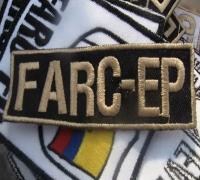In September, the Revolutionary Armed Forces of Colombia (FARC), a Marxist guerilla organization currently attempting to negotiate an end to its nearly five-decade armed conflict with the Colombian government, called for the formation of a truth commission to investigate Colombia’s conflict. In an email interview, Christian Voelkel, an analyst with the Colombia and Andes project at International Crisis Group, explained the role of transitional justice in Colombia’s peace process, which was also the subject of a recent International Crisis Group report.
WPR: What is the scope of the transitional justice measures already in place in Colombia?
Christian Voelkel: Transitional justice has been one of the most dynamic policy fields over the past decade. The first explicit transitional justice measure in Colombia was the 2005 Justice and Peace Law. It awards reduced sentences to more than 4,000 demobilized paramilitaries and some guerrilla members, in exchange for collaboration on truth-telling and reparations. Implementation problems spurred a reform in 2012, which refocused efforts on those most responsible for the most serious crimes.

